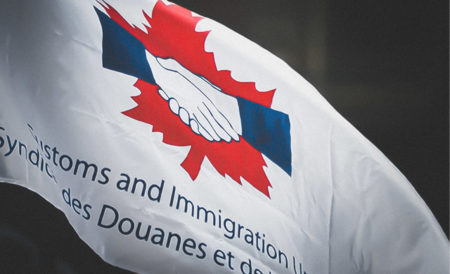In a major victory for federal public service workers hardest hit by the pandemic, an arbitration board ruled that Treasury Board cannot force employees to exhaust all their other leave before accessing 699 leave for COVID-19-related reasons.
This decision means that PSAC members who filed individual grievances related to 699 leave — where members were forced to use other available leave like sick leave, vacation leave or family leave before accessing 699 leave — can now request the leave be reimbursed to their leave banks.
Treasury Board’s heavy hand during the pandemic
The 699 leave provision is for “other leave with pay” and members can request it through their manager when they are unable to report to work for reasons beyond their control. This is different from sick leave and vacation time.
PSAC members relied on 699 leave to grapple with radical work-life changes during the pandemic. Parents were often left with no choice but to apply for 699 leave when schools and daycares were closed or went remote, but the government heavily restricted its use.
The restrictions disproportionately impact marginalized groups who have been the hardest hit by the pandemic, including women, Black, Indigenous and racialized employees, workers with disabilities, high-risk workers and workers with family obligations.
PSAC filed several policy grievances with Treasury Board, CFIA and other agencies for restricting the use of 699 leave. Two of these grievances were then brought before the Federal Public Sector Labour Relations and Employment Board.
The Board found the 699 leave policy breached PSAC’s collective agreement by requiring employees to exhaust other leave before 699 leave could be granted. The Board ruled this posed an undue burden on employees and violated members’ collective agreements.
On parental leave specifically, the Board ruled that denial of 699 leave to parents who “chose” not to send their children to school or daycare is not discriminatory or a violation of the collective agreement. Although parents may have a right to choose to keep their children at home” this was a choice and not a right that is protected by human rights legislation, the Board ruled. PSAC is reviewing this aspect of the decision for potential grounds for judicial review given the evidence that parents had little to no choice regarding childcare during the pandemic as well as the state of human rights jurisprudence on the issue of sex and family status discrimination.
Requesting 699 leave
If you need leave related to COVID-19, you should continue to request 699 leave. If your request is denied or you are forced to take other types of leave, reach out immediately to your PSAC regional office or your component labour relations officer to discuss whether you should file an individual or group grievance, including a grievance citing discrimination on the grounds of sex, family status or disability.
Stay up to date about 699 leave and other important issues by updating your contact information and signing up for our latest updates.
This article was first posted on the PSAC website.





